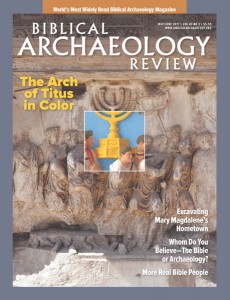
Biblical scholarship can be tedious and exacting work, like accounting or taxidermy. Unlike these fields, Biblical scholarship is often controversial, attracting charges of heresy, treason and even insanity. I explore some of these controversies in my recent book about textual criticism of the Hebrew Bible, showing how textual critics over the last several centuries have often encountered resistance to their scholarship.1 For instance, in 1516 when Erasmus published the first critical edition of the New Testament and argued for the need to learn Biblical languages (Greek, Hebrew and Aramaic) to understand the Bible, he was called everything from arch-heretic to antichrist. One critic wrote, “We do not need a knowledge of foreign languages for an understanding of Holy Writ, and for this reason it is vain and frivolous to spend time on learning them. … It is completely insane and smacks of heresy.” Such were the emotional and theological stakes of Biblical criticism at the time.
Already a library member? Log in here.
Institution user? Log in with your IP address.

